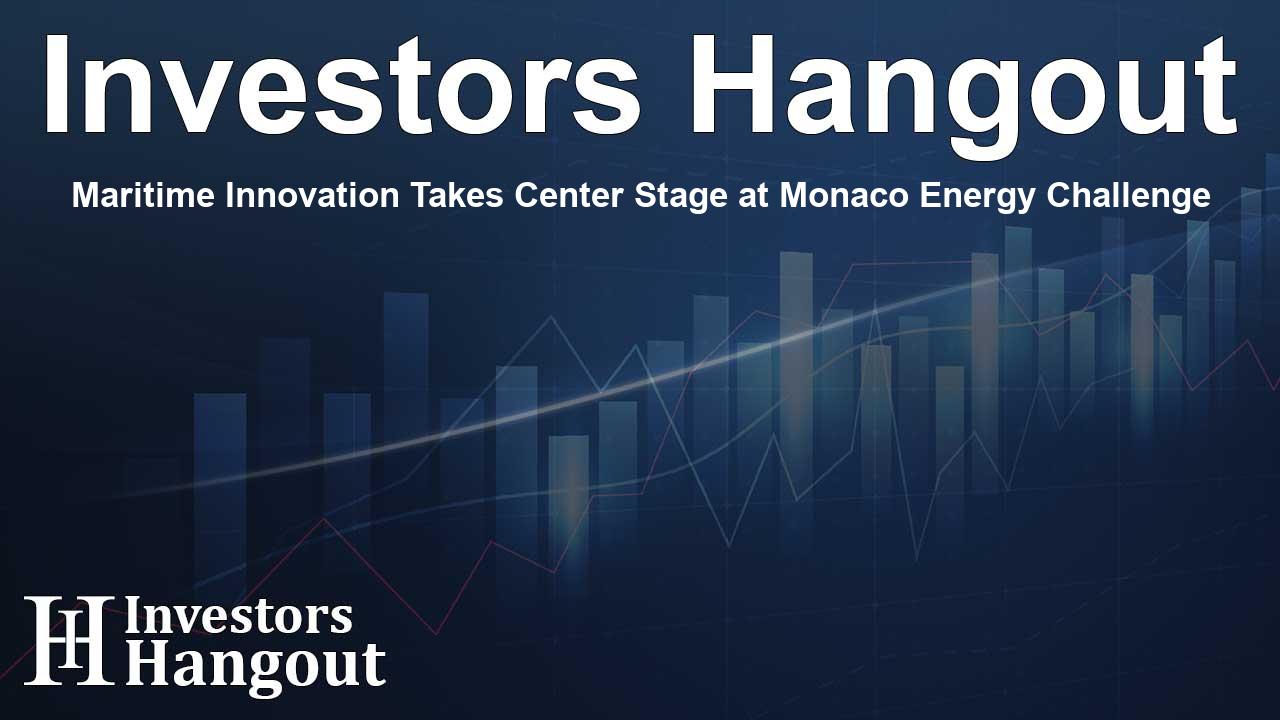Maritime Innovation Takes Center Stage at Monaco Energy Challenge

Innovative Waves: The Monaco Energy Boat Challenge
The Monaco Energy Boat Challenge has emerged as a beacon of maritime innovation since its inception in 2014. Set against the breathtaking backdrop of Monaco, this event has attracted a remarkable number of participants over the years. In 2024 alone, 40 universities and over 700 students from numerous countries came together to push the boundaries of what's possible in boating technology. This year, the event is undergoing exciting changes, while still fostering vital connections between budding engineers and industry veterans through its mentoring program and Job Forum.
Building the Future of Recreational Boating
Bernard d'Alessandri, the General Secretary of the Yacht Club de Monaco, remains a driving force behind this initiative. He emphasizes that the aim is to continue advocating for technological advancements, shaping the future landscape of recreational boating. With the backing of prestigious supporters like the Prince Albert II of Monaco Foundation, UBS, BMW, and SBM Offshore, the challenge is gaining momentum, attracting further collaboration from major maritime stakeholders such as Monaco Marine and Azimut | Benetti Group.
Year-Round Commitment
For participating students, this venture isn’t just a one-off event; it’s a long-term commitment encompassing a rigorous year-round schedule. Important milestones include:
- Registration opens: 16 September 2024
- Applications confirmation (Energy, AI, SeaLab): 10 February 2025
- Registration closes for Open Sea category: 15 May 2025
Introducing the Energy Class
A groundbreaking initiative within the challenge is the introduction of the Energy Class, a zero-emission prototype laboratory. This section encourages teams to experiment with various technologies, opening the door to hydrogen, kinetic energy storage, and wind power. From its launch in 2018, when the Yacht Club de Monaco provided teams with a standard catamaran hull design, the Energy Class inspired creativity and ingenuity among contestants.
Transitioning from the Solar Class
While the Solar Class has been a significant aspect of the challenge, it is now being phased out as contestants are urged to explore a variety of energy solutions. Participants are encouraged to either register in the newly formed Energy Class or adapt their designs to fit the upcoming AI Class.
Showcasing Technology: The SeaLab Class
The SeaLab Class has risen to prominence as the flagship category of the event, permitting boats up to 12 meters long to exhibit their innovative technologies. The main criteria focus on safety, while allowing the use of green methanol, provided that boats are equipped with carbon capture systems. This strategy significantly promotes the yachting sector's sustainability, paving the way for a greener future.
Pioneering the AI Class for Autonomous Innovations
Set to make its debut in 2025, the AI Class brings forth a new level of competition by allowing autonomous vessels to participate. This category is specifically designed for prototypes that meet rigorous technical standards, offering previous Solar Class participants a platform to enhance their designs. Although a pilot must still be on board, their intervention will be limited to addressing technical issues, marking a revolutionary integration of artificial intelligence into maritime practices.
Acknowledging Creativity in Innovation
For the second consecutive year, the Prince Albert II of Monaco Foundation will present the Sustainable Yachting Technology Award, valued at €25,000. This award recognizes the most impactful technological advancements aimed at energy efficiency and reducing carbon emissions. Last year, a team from Politecnico di Milano won this accolade for their innovative approach to fuel cells.
A Collaborative Future Driven by Sustainability
The 12th Monaco Energy Boat Challenge has firmly established itself as an essential event for enthusiasts and stakeholders in sustainable maritime innovation. By consistently introducing pioneering energy solutions and fostering international collaborations, the challenge contributes to shaping a cleaner, more efficient future for yachting.
Frequently Asked Questions
What is the Monaco Energy Boat Challenge?
The Monaco Energy Boat Challenge is a competition aimed at promoting innovation in maritime technologies, focusing on sustainability and energy efficiency in boating.
How many universities participated in the 2024 event?
In 2024, 40 universities participated, involving over 700 students from 25 different countries.
What new classes were introduced in 2025?
The AI Class and revised Energy Class will be introduced in 2025, focusing on autonomous and zero-emission technologies.
What is the significance of the Sustainable Yachting Technology Award?
This award recognizes teams that develop innovative solutions aimed at improving energy efficiency and lowering carbon emissions in yachting technologies.
How does the SeaLab Class contribute to sustainability?
The SeaLab Class allows experimentation with advanced technologies and encourages the use of carbon capture systems to promote environmental sustainability.
About Investors Hangout
Investors Hangout is a leading online stock forum for financial discussion and learning, offering a wide range of free tools and resources. It draws in traders of all levels, who exchange market knowledge, investigate trading tactics, and keep an eye on industry developments in real time. Featuring financial articles, stock message boards, quotes, charts, company profiles, and live news updates. Through cooperative learning and a wealth of informational resources, it helps users from novices creating their first portfolios to experts honing their techniques. Join Investors Hangout today: https://investorshangout.com/
Disclaimer: The content of this article is solely for general informational purposes only; it does not represent legal, financial, or investment advice. Investors Hangout does not offer financial advice; the author is not a licensed financial advisor. Consult a qualified advisor before making any financial or investment decisions based on this article. The author's interpretation of publicly available data shapes the opinions presented here; as a result, they should not be taken as advice to purchase, sell, or hold any securities mentioned or any other investments. The author does not guarantee the accuracy, completeness, or timeliness of any material, providing it "as is." Information and market conditions may change; past performance is not indicative of future outcomes. If any of the material offered here is inaccurate, please contact us for corrections.